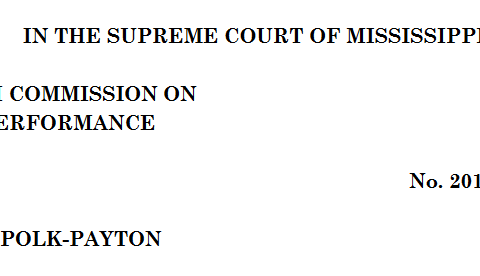The United States Supreme Court has repeatedly held that restrictions on the speech of judicial candidates must satisfy strict scrutiny. Judicial candidates must be able to freely communicate to the public so that voters can determine their qualifications. As this Court recognized in Mississippi Commission on Judicial Performance v. Wilkerson, 876 So. 2d 1006, 1010 (Miss. 2004), a judge may not be punished for violating a judicial canon when such punishment “would infringe on rights guaranteed under the First Amendment, including the freedom of speech.”
The Commission seeks to discipline Judge Polk-Payton for speech that other judges routinely engage in: promoting a book and using social media. These common activities do not threaten the integrity of the judiciary. Rather, they are valuable to voters who can evaluate that speech and use it to make informed decisions.
The Commission believes Judge Polk-Payton’s use of the Twitter handle “@JudgeCutie” is “undignified and demeaning” to the judicial office, but the handle conveys the judge’s personality to the public, which is essential for an elected judge. The Commission also objects to a photo on the cover of the judge’s book, which shows her in ordinary clothes with her robe partially on; it is not clear whether she is putting on her robe or taking it off, but neither action demeans the judicial office. “Undignified” is a subjective judgment, and if anyone should enforce it, it should be the voters: If they find Judge Polk-Payton’s speech unbecoming to a judge, they will make that known come election time.
Moreover, social media use by judges is relatively new. States have not provided much guidance on its use, other than to uniformly conclude that it is generally allowed. The Mississippi Judicial Canons, which require “high standards of conduct,” make no mention of social media. Neither the Commission nor this Court has offered any clarification. Given the vagueness of the Canons, Judge Polk-Payton had no way of knowing that her speech was impermissible.
Read Full Brief














